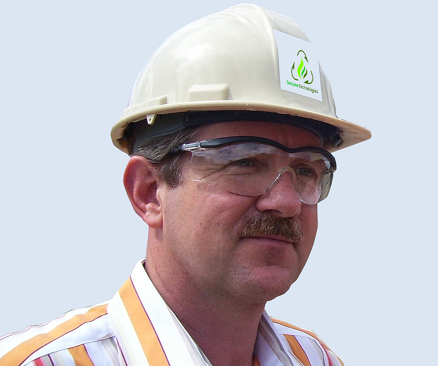Sustane Technologies, the Nova Scotia company that turns garbage into eco-fuel, has broken ground on its Chester plant and expects to have it operational in a year. The plant is expected to cost $16 million-$17 million.
The company came to prominence last year when it won Innovacorp’s I-3 Startup Competition, capturing $225,000 in prizes. Then in August it signed an agreement with the Municipality of Chester to build a plant where the local government could bring household refuse to be converted to fuels rather than tossed into a landfill.
What’s more, CFO and co-founder Robert Richardson said the company is now in talks to develop plants in other locations and hopes to have one or two signed this year.
“The most important thing is we’re in the ground in Chester and we’re building our plant,” said Richardson in an interview this week. “We’re going to have the footing for the building that will house the plant go in in about a week or so. We think we will deliver the plant by December of this year.”
Richardson, who is also the CFO and owner of Compass Commercial Realty Ltd., said the team led by CEO Peter Vinall expects to have the plant operational in the first quarter of 2018.
Fundy Monitoring Projects Funded
What that plant will do is to take 90 per cent of the stuff that goes into the landfill and cook it with steam. The landfill will still have to take special items like old mattresses, but the system should reduce the volume of refuse going into the landfill by nine-tenths. Through this process a few marketable byproducts are produced, most notably biomass pellets and synthetic diesel.
The plant will employ about 25 people and will be large enough to handle refuse from other municipalities as well as Chester, said Richardson. He added the facility will not look like a place where you bring garbage — it will be clean, with stainless steel equipment, and the main residue from the manufacturing process will be steam released cleanly into the atmosphere.
The Nova Scotian-owned company has raised the money to finance the plant. Although Richardson declined to provide details on the funding, he did say it pretty well divided evenly between equity and debt, and that most of the investors are Canadian.
The company grew out of technology pioneered in Spain by co-founder and chief technology officer Javier De La Fuente. Richardson said the Chester plant will actually improve on the technology used in Spain because it will, for example, remove plastics from the biomass pellets, allowing them to be burned safely and increasing their value.
Aside from a functioning plant, the Chester site will become a demonstration facility for the company, so it can fly in prospective clients and show them how the technology works. Sustane may even sign a deal or two before the new plant is commissioned.
“We’ve got paper going back and forth on a number of proposals,” said Richardson.
Sustane is talking to other jurisdictions in Nova Scotia and “looking at New Brunswick in a big way,” he said. It is also talking to municipalities on the eastern seaboard of the U.S., where “tipping fees” for landfill are high because land is so expensive.
“I think we should have excellent uptake for anyone who comes to see (the new plant),” said Richardson. “But maybe we will have someone signed before we have the plant finished. Maybe in the next 3-6 months we should have one or two signed.”










